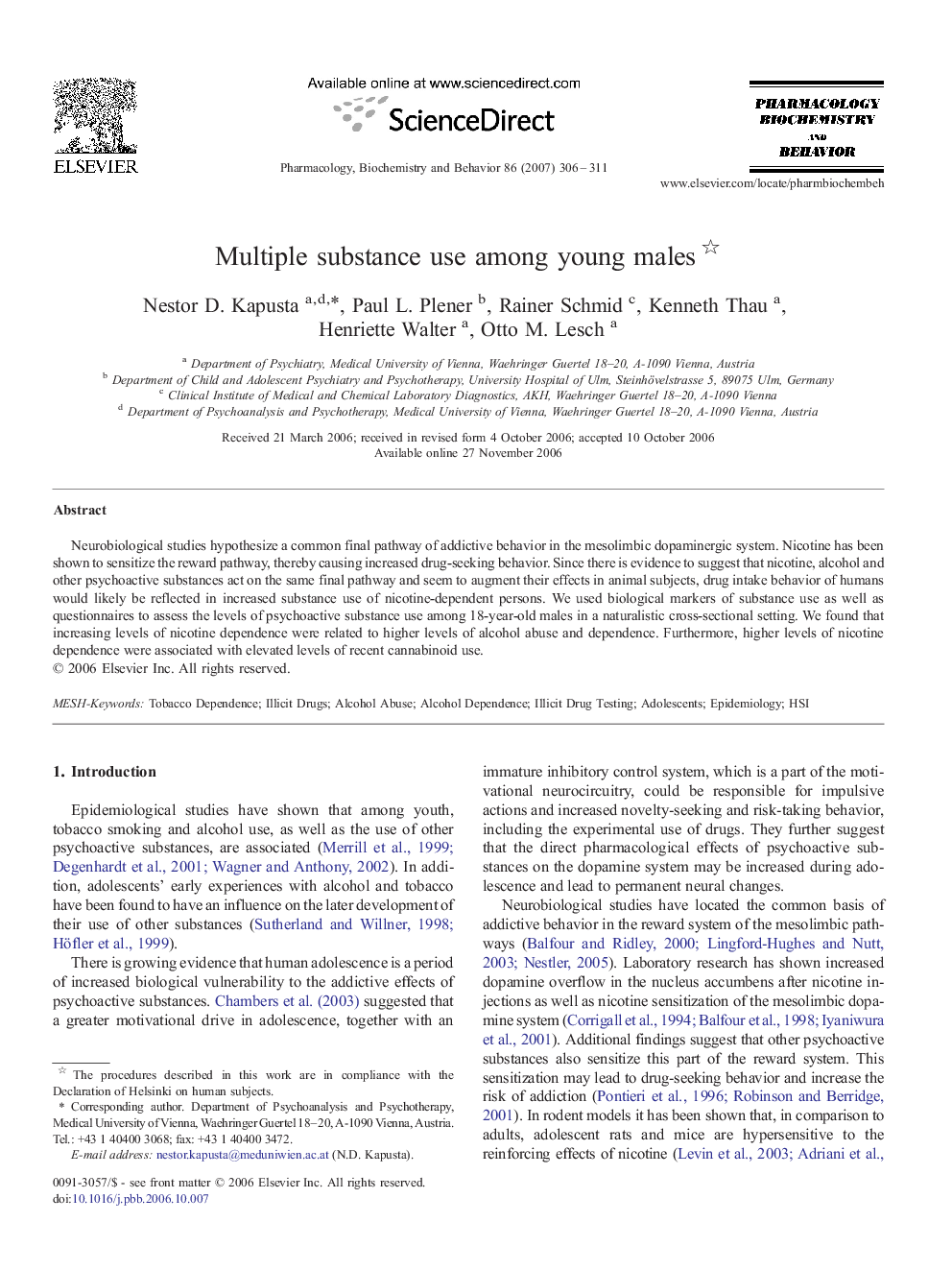| Article ID | Journal | Published Year | Pages | File Type |
|---|---|---|---|---|
| 2014445 | Pharmacology Biochemistry and Behavior | 2007 | 6 Pages |
Neurobiological studies hypothesize a common final pathway of addictive behavior in the mesolimbic dopaminergic system. Nicotine has been shown to sensitize the reward pathway, thereby causing increased drug-seeking behavior. Since there is evidence to suggest that nicotine, alcohol and other psychoactive substances act on the same final pathway and seem to augment their effects in animal subjects, drug intake behavior of humans would likely be reflected in increased substance use of nicotine-dependent persons. We used biological markers of substance use as well as questionnaires to assess the levels of psychoactive substance use among 18-year-old males in a naturalistic cross-sectional setting. We found that increasing levels of nicotine dependence were related to higher levels of alcohol abuse and dependence. Furthermore, higher levels of nicotine dependence were associated with elevated levels of recent cannabinoid use.
